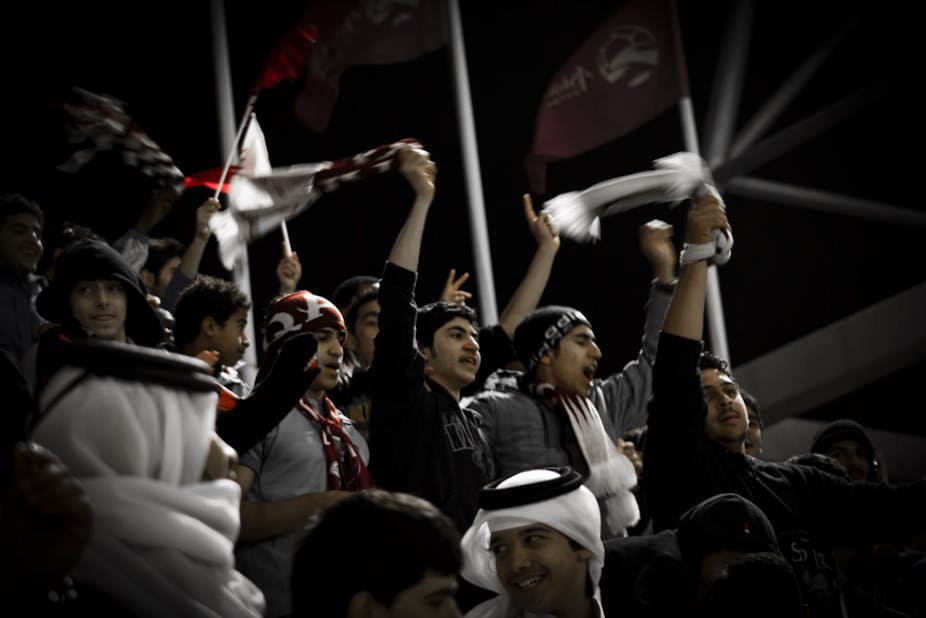Reports in the Sunday Times that improper secretive payments of millions of pounds were allegedly made to officials supporting Qatar’s bid for the 2022 World Cup have led to calls for the Gulf state to be stripped of the right to host the tournament.
FIFA may see this as a good thing. The tournament is already dogged by controversy over anti-gay legislation and migrant worker abuses and last month FIFA president Sepp Blatter admitted awarding it to Qatar was a “mistake” given the blistering summer temperatures.
FIFA is also well aware that the countries who lost out on the 2022 World Cup are closely monitoring current developments, especially Australia. There have been hints of possible legal action as millions – an estimated £25m in Australia’s case – were spent on a bidding process that now appears tainted.
So can FIFA simply run another vote and pretend the past few years never happened?
In law, if a contract has been secured through corruption it cannot be allowed to stand. Fraud, it is said, unravels everything. The underlying idea is that a person should not be permitted to keep an advantage they have obtained by corrupt means.
At its core, the agreement between FIFA and Qatar to host the 2022 World Cup is contractual in nature and thus the situation based on the Sunday Times revelations is clear: the host contract is invalid and should not be allowed to stand.
The above legal perspective is, however, predicated on two important points.
First, the corruption must, of course, be proven. It must not be forgotten that Qatar’s 2022 Committee vehemently denies any wrongdoing, despite the maelstrom of allegations. Corruption based on secretive bribes is notoriously difficult to prove both in terms of the resources and time that have to be devoted to its investigation and in translating evidential proof into satisfactory legal proof.
Second, the Sunday Times’ revelations will probably inform the investigations currently being carried out into both the 2018 (Russia) and 2022 Word Cup bids by FIFA’s ethics investigator, Michael Garcia, a former FBI official, and Garcia’s investigation is likely to face four significant challenges.
Such investigations are complex and the Court of Arbitration for Sport demands due process be followed at all times. Any errors would leave FIFA vulnerable to legal challenge by the aggrieved but well-resourced Qatari organising committee. The same resources that secured the cup in the first place will be deployed to save it.
Beyond a blanket denial, the Qataris are likely to make the argument that any wrongdoing that might be found was performed by “rogue agents” outside their control. Such hand-washing isn’t unique to football: pharmaceutical giant GlaxoSmithKline (GSK) made a similar argument when faced by an investigation into alleged illegal payments by GSK to foreign public officials in China.
Similarly, if you are not a member of the “football family”, as FIFA likes to call it, then Garcia cannot compel you to cooperate. Take Mohamed bin Hammam, the former FIFA executive who played a key role in both Qatar’s hosting bid and the Sunday Times’ investigation. Bin Hammam quit football in late 2012 after FIFA issued him with a second life ban for conflicts of interests (his first life ban, for attempted bribery, was overturned by CAS due to a lack of evidence). Now he is out of the game, there is little the sport’s authorities can do.
And what of those people who do have to play by FIFA’s rules, such as the executive committee members who voted for Qatar and ultimately ignored FIFA’s own technical report on the potential heat risks? If disciplined, they would have an internal right of appeal within FIFA and the external right to challenge any finding at CAS, as in bin Hammam’s case. Building a challenge-proof case will be tough.
Finally, it must not be forgotten that we have been here before. Allegations of inappropriate payments were made surround the bidding process for the 2002 Winter Olympics and the fallout eventually led to genuine reform of Olympic Games’ bidding process. A similar pattern may emerge here.
In the end, what is important is not whether a “re-vote” on the hosting of World Cup 2022 ultimately takes place but whether both the bidding processes for future tournaments and the conduct of the tiny electorate who votes abide by the basic principle of competitive sport – fair play.

